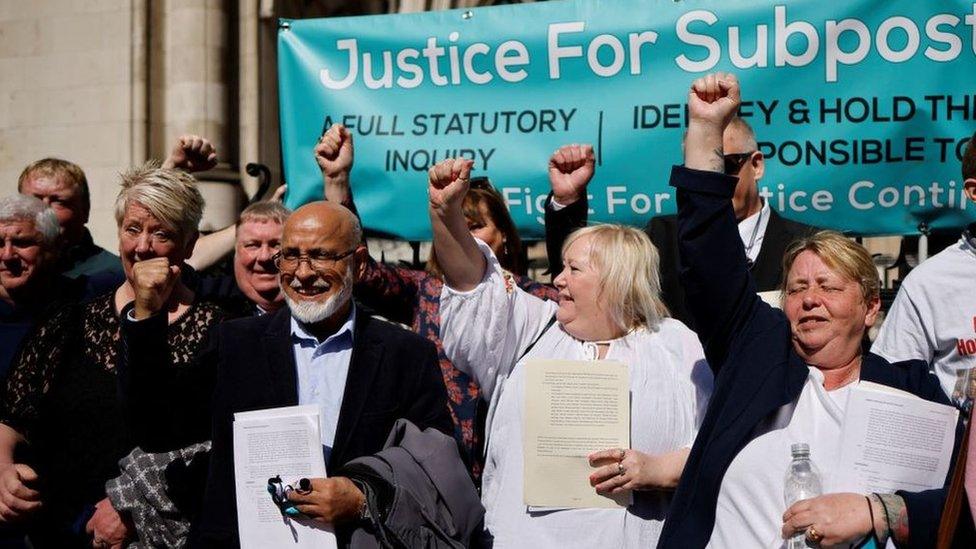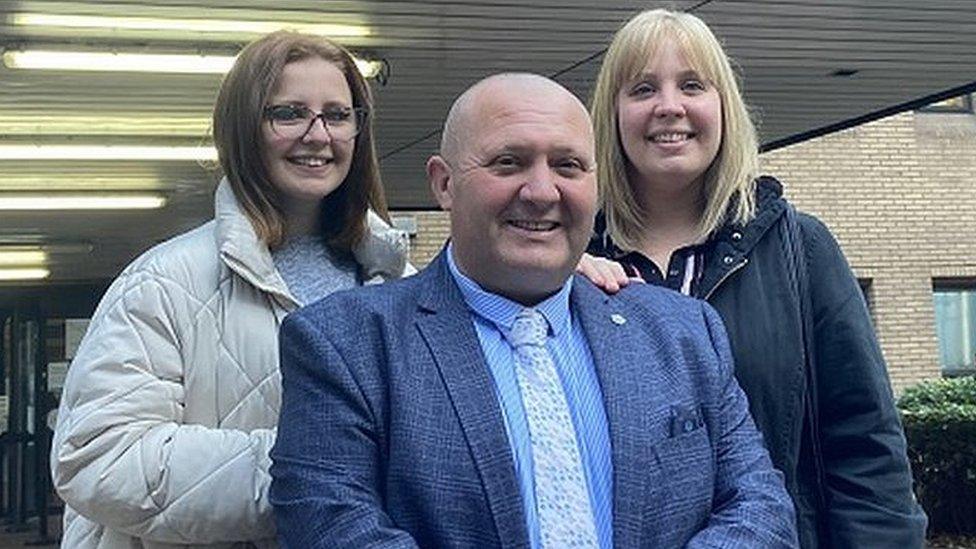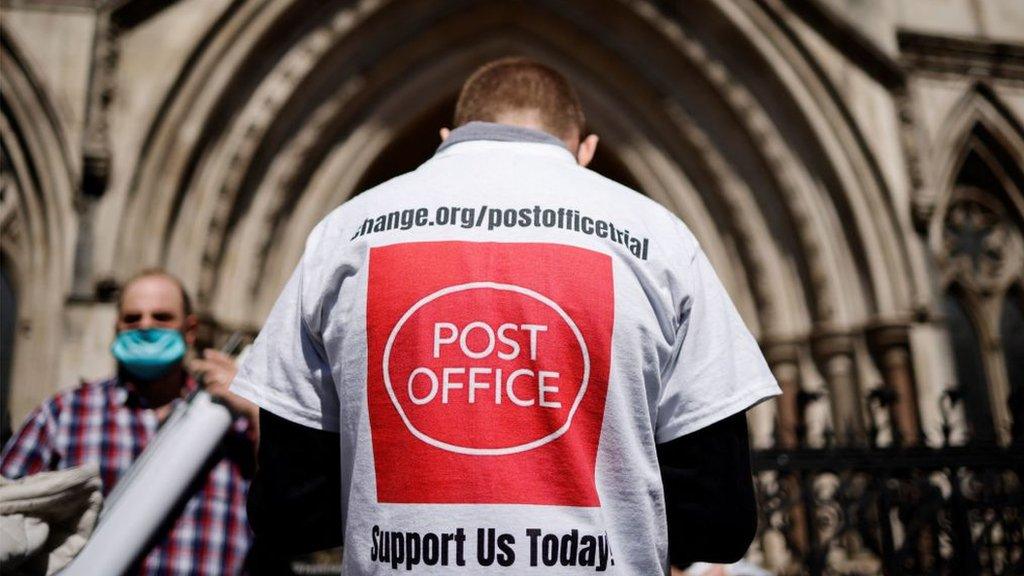Post Office scandal: Government to foot bill for postmasters' compensation
- Published

The government has agreed to foot the bill for the compensation of former Post Office workers who were falsely convicted of theft in the long-running Horizon saga.
The Post Office has said it is unable to cover the payments for the exonerated individuals.
As the Post Office's only shareholder, the government has confirmed in a statement, external that it will pay.
So far, 72 postmasters' convictions have been quashed.
Several other cases are in progress, and there are potentially hundreds more postmasters whose convictions relied on Horizon evidence who may seek to have their convictions overturned.
Postal Affairs Minister Paul Scully said: "We want to see these postmasters with quashed convictions compensated fairly and swiftly.
"I am pleased to confirm that today the government is making funding available to facilitate Post Office to make final compensation payments to postmasters whose convictions have been overturned.
"By providing this funding, government is helping Post Office deliver the fair compensation postmasters deserve."
Discussions about final settlement figures with the individuals involved will now take place. The government has not provided any details about whether it has set aside a specific amount of money.
Darren Jones, who chairs the Commons Business Committee, said it was "wholly unacceptable" for a minister to give a written statement without sufficient detail only two hours before the committee's own hearing on the issue began.
Between 2000 and 2014, the Post Office prosecuted 736 sub-postmasters and sub-postmistresses - an average of one a week - based on information from a recently-installed computer system called Horizon.
Some went to prison following convictions for false accounting and theft, many were financially ruined and have described being shunned by their communities.
But it was the software at fault, containing "bugs, errors and defects" according to the High Court judgement which quashed many of the convictions.
Some died before campaigners won the legal battle to have their cases reconsidered.


The government's bill keeps growing as more elements of this scandal emerge. Despite having spent millions on their own legal costs pursuing sub-postmasters through the courts, the Post Office has essentially said it can't afford to pay for any of the clear-up. As the sole shareholder, it's up to the government to settle up.
They had already agreed to pay the costs of the scheme that refunds the money that branch managers put in to cover the holes that the IT was incorrectly showing. That bill will run into the millions and cash advances are now being paid to some of those people.
Now the government has agreed to fund whatever financial settlements are reached with those who were wrongly convicted in court.
Money can never cover the loss of livelihoods, family relationships and the loss of freedom for some of those convicted, but it's likely some will see settlements worth multimillions.
After decades of overlooking reports of problems at the Post Office, the government is now having to use the deep-pockets of the taxpayer to make amends.

The Post Office welcomed the financial backing being provided by the government.
"Whilst we cannot change the past, it is right that meaningful compensation is provided to victims of the Horizon scandal as fast as possible," said its chief executive Nick Read.
"Many former postmasters have waited a long time for justice and Post Office welcomes the government's announcement that funding is being made available for compensation that recognises the impact on the lives of those affected."
A scheme, backed by the government, had already been set up to arrange financial redress and compensation for those affected.
The "vast majority" of postmasters who have had their convictions quashed have each received an interim compensation payment of up to £100,000, Mr Scully said.

Jo Hamilton says the financial impact was huge
One of those to have received an interim payment is Jo Hamilton. She was accused by the Post Office of taking £36,000 from the village shop she ran in Hampshire. Her conviction was eventually quashed.
On Tuesday, she told the Business Committee about the financial impact that the saga had on her life.
"When I had discrepancies they kept back my wages twice - I'd ring up and ask how much the shortfall was and they'd say: 'Well, you have to pay it'," she told MPs.
"They just kept my wages until it was paid off and then the amounts grew and grew.
"I re-mortgaged and put £9,000 in, I borrowed money from friends, my parents helped out and then, ultimately, I ended up in Winchester Crown Court and had to plead guilty to false accounting."
Another former sub-postmaster - Noel Thomas, from Anglesey - said the compensation would not make up for the time he spent in prison.
In 2006, he was wrongly jailed for nine months for false accounting after £48,000 apparently went missing from office accounts.
"I didn't have the money, I lost about £30,000 for my post office wage and about £15,000 for my county council job," the 74-year-old said.
"It was a big blow, everything went overnight."
He said he was originally told he was the only one involved in the scandal, but he suddenly realised over a cup of tea with the other 35 sub-postmasters that he was not alone.
"It's been a long fight. The first four years were very hard, I was on my knees but thanks to family and good friends and colleagues, gradually we got there."
Related topics
- Published18 November 2021

